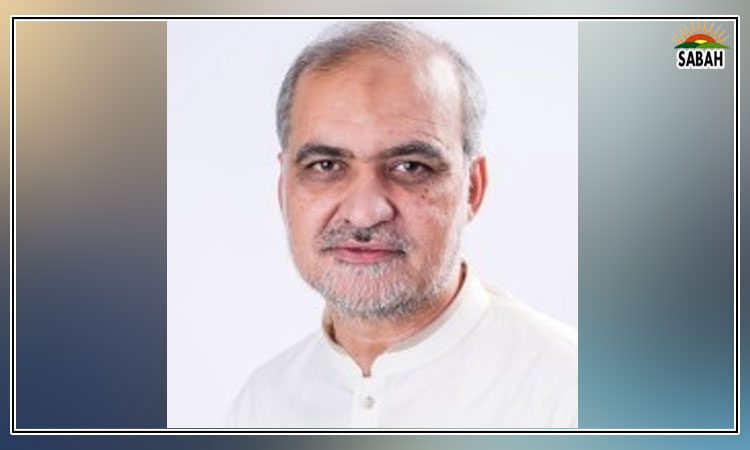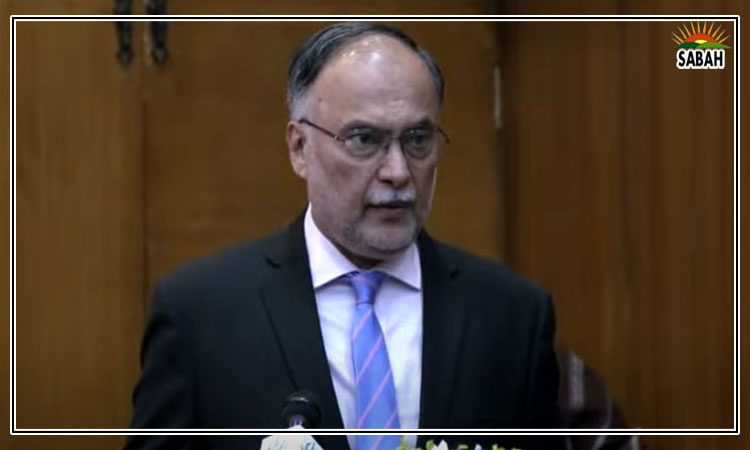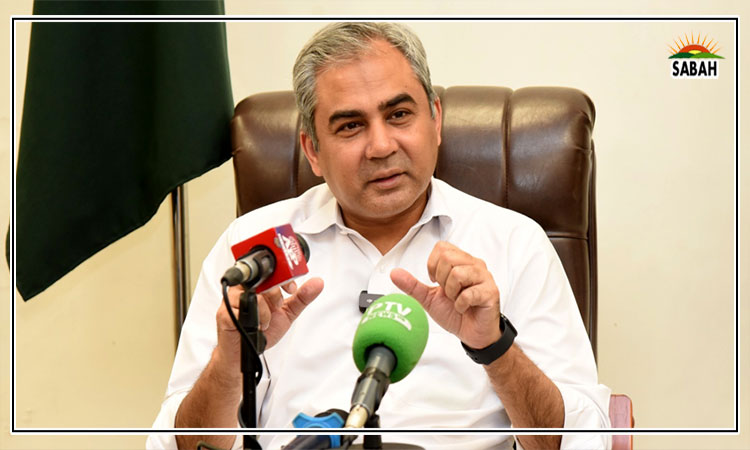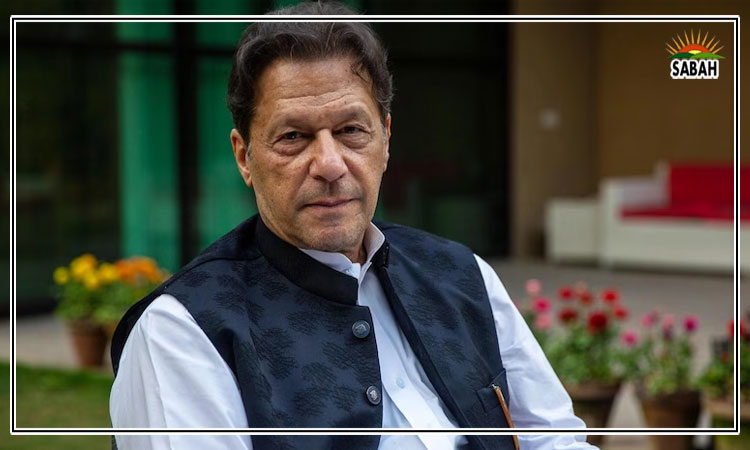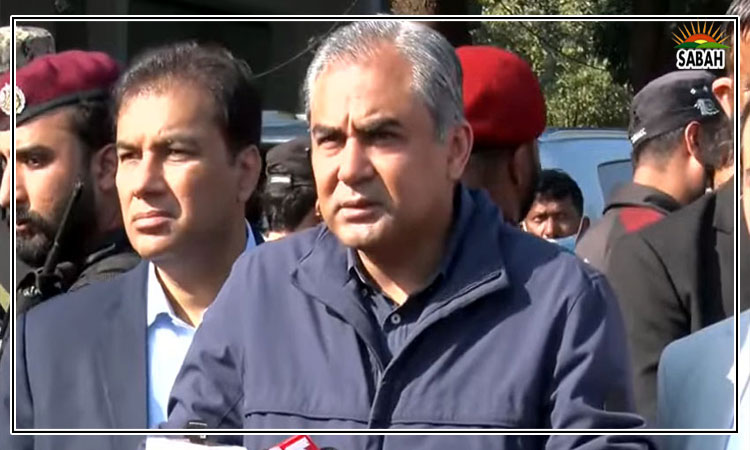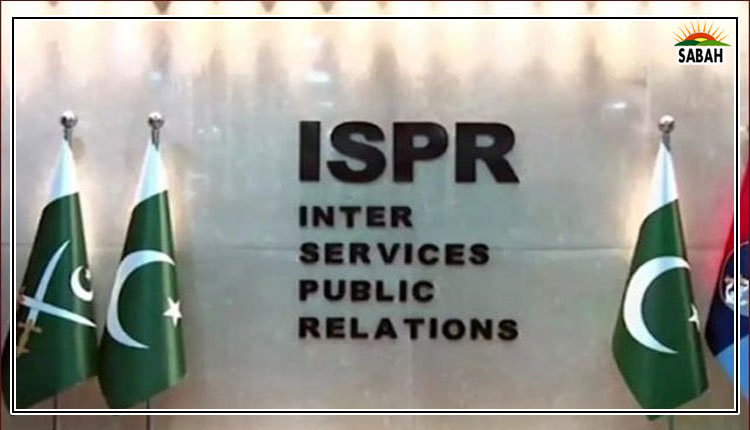ATC judge Raja Jawad Abbas Hassan extends Imran Khan’s bail in terror case till Sept 20
ISLAMABAD, Sep 12 (SABAH): An anti-terrorism court (ATC) in Islamabad granted on Monday an extension in the pre-arrest bail plea of Pakistan Tehreek-e-Insaf (PTI) Chairman and former prime minister Imran Khan till September 20, in a terror case for allegedly threatening Additional Sessions Judge Islamabad Zeba Chaudhry during a public rally in Islamabad on August 20. The court has directed Imran Khan to appear in court at 2:00 PM on 20th September again.
Imran Khan was booked in a case under sections of the Anti-Terrorism Act (ACT) for making threatening remarks against an additional sessions judge and senior officials of the Islamabad Police in his speech at a rally.
The party had moved the Islamabad High Court (IHC) to grant Khan transit bail till August 25, but the court had directed the former premier to approach an ATC as it was a terror case.
The FIR registered against Imran Khan states that he threatened Additional Sessions Judge Zeba Chaudhry and police officers at a rally in F-9 Park to “terrorise” police officials and the judiciary.
The main aim was to prevent the police officers and judiciary from carrying out their legal obligations, states the FIR. The FIR was registered on the complaint of Magistrate Ali Javed in Islamabad’s Margalla Police Station under Section 7 of ATA.
At the outset of the hearing on Monday, Imran Khan’s lawyer Dr. Zaheeruddin Babar Awan pleaded with ATC Judge Raja Jawad Abbas Hassan to allow Imran Khan’s vehicle to enter the Federal Judicial Complex at the outset of the hearing.
“If you had told us this earlier, we would have given permission,” the judge replied and asked if Imran Khan had joined the investigation.
The counsel replied that Imran Khan has joined the investigation via his lawyer. “The IHC has issued a notice on the plea seeking dismissal of the case,” Imran Khan’s lawyer noted and accused the police of misleading the high court claiming that Khan was not cooperating in the investigation.
The former prime minister has not appeared before a joint investigation team (JIT) formed by the Islamabad Police to probe the matter despite three notices.
Meanwhile, the IO informed the court that he received Irman Khan’s statement through a lawyer, at which the PTI chair was asked to appear in person.
“The statement was sent to you but you didn’t make it a part of the case,” judge Raja Jawad Abbas Hassan criticised the IO, saying that doing so shows his ill intentions.
The court remarked that the offence in question is a matter related to Imran Khan’s speech. “Why do you want the accused to appear in person,” it asked.
At this, the assistant prosecutor maintained that they have to interrogate the accused. “The accused must appear if he has been summoned by the IO,” he said.
The court then adjourned the hearing till 11:00 AM, saying that the rest of the arguments will be heard after Imran Khan appears in court.
After a short break during the hearing, the PTI Chairman Imran Khan appeared before the court amid strict security.
Upon resumption of the hearing, Special Prosecutor Raja Rizwan Abbas informed the court that the petitioner hasn’t joined the investigation as yet despite being served notices thrice.
At this, Khan’s lawyer Babar Awan maintained that the investigation officer (IO) has the former premier’s statement. He argued that the court can issue a show-cause notice to the IO. He said that the IO will not be tried for it but a summary proceeding will be conducted, for which there is a two-year imprisonment.
“There is no legal value of a statement even if the accused confesses to the crime before the police. Why are they putting the condition of in-person appearance for investigations?” he said.
On his part, the special prosecutor said that the investigation officer or the JIT has to decide the course of investigations.
Later, the court adjourned the hearing till 2pm on September 20. The judge ordered the concerned authority to put the security measures in place just before the hearing for the convenience of the people visiting the court.
Talking to media personnel outside the court, the PTI chief reiterated that in his speech during a rally last month he had stated to take “legal action” against the judge who sent party leader Shahbaz Gill on remand.
About Gill, Imran Khan said that he was a university professor who was not a “terrorist or a murderer”, but was tortured in “every way” in the prison, a claim which the ousted premier said was “verified by the jail superintendent”. He claimed that Gill was then sent back in remand to those who had tortured him. Today anyone can be held under terrorist charges by the fascist government.
The world is watching us, this is embarrassing for Pakistan! “They have made a mockery of the terrorism laws of the country,” he said.
“Across the world, the front page [of newspapers] says that Imran Khan has a terrorism case against him because he called for legal action after custodial torture”, he said, adding that in that case “anyone could be a terrorist” if they claim to take legal action against sending a person back on remand despite torture.
He maintained that this was “contempt” of Pakistan and of its terrorism laws.
“What pains me the most is that the matter of the custodial torture [on Gill] has been left behind. A matter which is condemned across the world,” he added.
Earlier, while talking to media personnel outside the court prior to the hearing, Imran Khan said that he was “very dangerous”. He also told a journalist to not compare him to the “terrorist” MQM founder and “thieve Nawaz Sharif”.
On September 2, the ATC granted interim bail to PTI Chief Imran Khan till September 12.
Imran had been booked in a case with terror clauses after he had stated in a public rally that they would not spare the judge who had approved the remand of Imran Khan’s chief of staff Shahbaz Gill.
Imran subsequently approached the Islamabad High Court (IHC) seeking bail in the case. However, the court had told him to take it up with the anti-terror court since terrorism cases are handled by the specific court.


